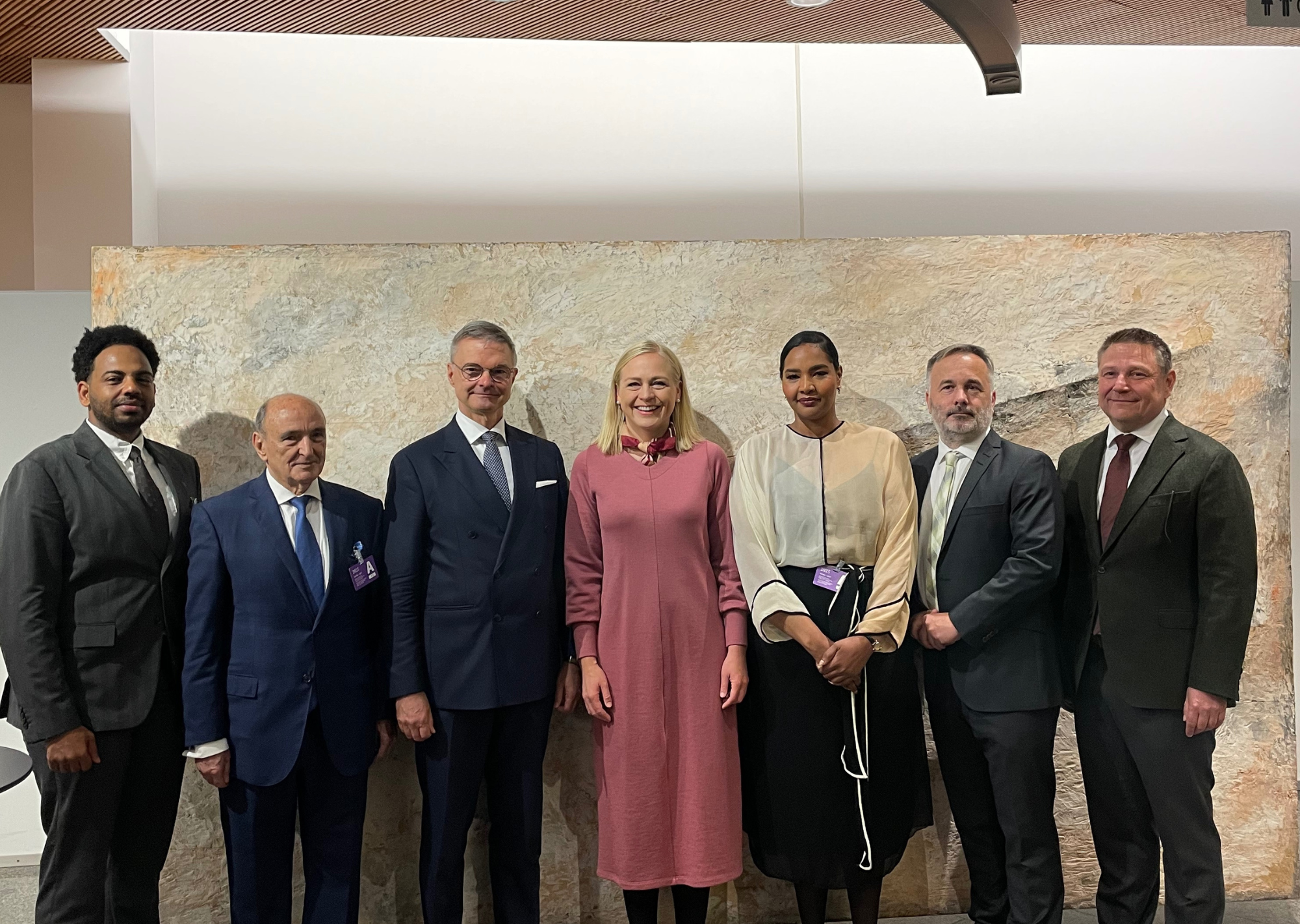Peacemakers Network convened a high-level panel on Geopolitcal Competition and Conflict Dynamics in the Horn of Africa: Sudan as a Battleground of a Multipolar World
October 2025

Representatives of the Ministry for Foreign Affairs of Finland, Finn Church Aid, the Finnish Institute of International Affairs, and the Peacemakers Network hosted a seminar in Helsinki, Finland on Sudan’s conflict within the wider context in the Horn of Africa. October 2025.
The Network for Religious and Traditional Peacemakers together with Finnish Institute of International Affairs (FIIA), Finn Church Aid and the Ministry for Foreign Affairs of Finland hosted a seminar in Helsinki on Sudan’s conflict within the wider context in the Horn of Africa. Leading Sudanese experts and international stakeholders discussed how external actors, including the European Union, can better support local humanitarian and peacebuilding efforts. The panel highlighted the importance of linking grassroots initiatives with broader regional and global dynamics shaping the conflict and prospects for peace.
The keynote address was given by Ambassador Mohammed Belaiche, Special Representative of the AU Commission Chairperson in Sudan. Panelists included Kholood Khair, Director at Confluence Advisory, Hamid Khalafallah, Doctoral Researcher at Manchester University and Jonas Jonsson, Head of Division, Horn of Africa and East Africa at the European External Action Service (EEAS). The panel was moderated by Katariina Mustasilta, Senior Research Fellow at FIIA, with comments provided by Pekka Haavisto, Finnish Member of Parliament. Closing remarks were provided by Matthias Wevelsiep, Director of Programme and Operations at The Network for Religious and Traditional Peacemakers.
Conflict in the Horn of Africa
The Horn of Africa has become a focal point of rapidly shifting geopolitical rivalries in today’s multipolar world. At the same time, the region continues to grapple with profound local and regional peace and security challenges. This is most starkly visible in Sudan, where a brutal war has dragged on for more than two years. Although the conflict is rooted in Sudan’s own power struggles and its long history of violence, it has also become heavily regionalised and internationalised. Both main armed factions are reportedly receiving substantial support from external state actors, including military assistance.
Despite its devastating toll, the war in Sudan has received limited international attention. Global discourse remains largely focused on the urgent humanitarian disaster, while the historical and political drivers of the conflict are often overlooked. Yet, humanitarian relief, while essential, cannot resolve the crisis on its own. Sustainable progress in easing civilian suffering and ending the violence requires confronting the war’s deeply political character, shaped not only by Sudan’s internal dynamics but also by the wider regional and international contests for political, security, and economic influence.
The seminar explored the complex and internationalised nature of Sudan’s conflict within the broader Horn of Africa setting. It convened leading Sudanese specialists alongside international stakeholders engaged in Sudan and the Horn of Africa. The panel placed particular emphasis on how external actors can more effectively support Sudanese partners in their humanitarian and peacebuilding efforts on the ground. A core focus was on bridging these local, bottom-up initiatives with the wider regional and global (geopolitical and geoeconomic) dynamics that continue to shape both the conflict’s trajectory and the prospects for peace and security in the region.
Panelists Explore How to Bring Peace to the Horn of Africa
The Sudan conflict has not received the global attention it urgently requires, as the world’s worst ongoing humanitarian crisis, with the country on the brink of becoming the site of the world’s most severe hunger. The conflict shows no signs of abating, as both sides appear committed to seeking victory through military means. The recent announcement of a parallel government by the RSF is particularly alarming. Speakers stressed that Sudan’s future must ultimately be determined by Sudanese people themselves.
Throughout the event, speakers recognized that traditional peace efforts have largely been inadequate. The conflict is often mischaracterized as a simple two-sided war, while mediation strategies have focused heavily on the warring parties rather than engaging civilian and civil society actors, who remain the backbone of Sudan’s civic fabric. Supporting these actors is crucial for sustainable peace.
Further, speakers emphasized that international actors, including the European Union and African Union, have a role to play, but their engagement must be carefully aligned with local realities. Priorities should include humanitarian access, protection of civilians, upholding the rule of law, and supporting civil society networks. Effective solutions require inclusive dialogue, attention to long-term democratic processes, and elevating actors genuinely committed to ending the war.
A recurring theme from the discussion is that a truly sustainable solution must center on civilian-led democratic transition. Short-term ceasefires or power-sharing agreements that merely preserve military interests will not address the root causes of the conflict. Peace in Sudan requires rethinking strategies, learning from past failures, and investing in those who can build the country’s democratic future from the ground up.
Follow the Peacemakers Network on social
